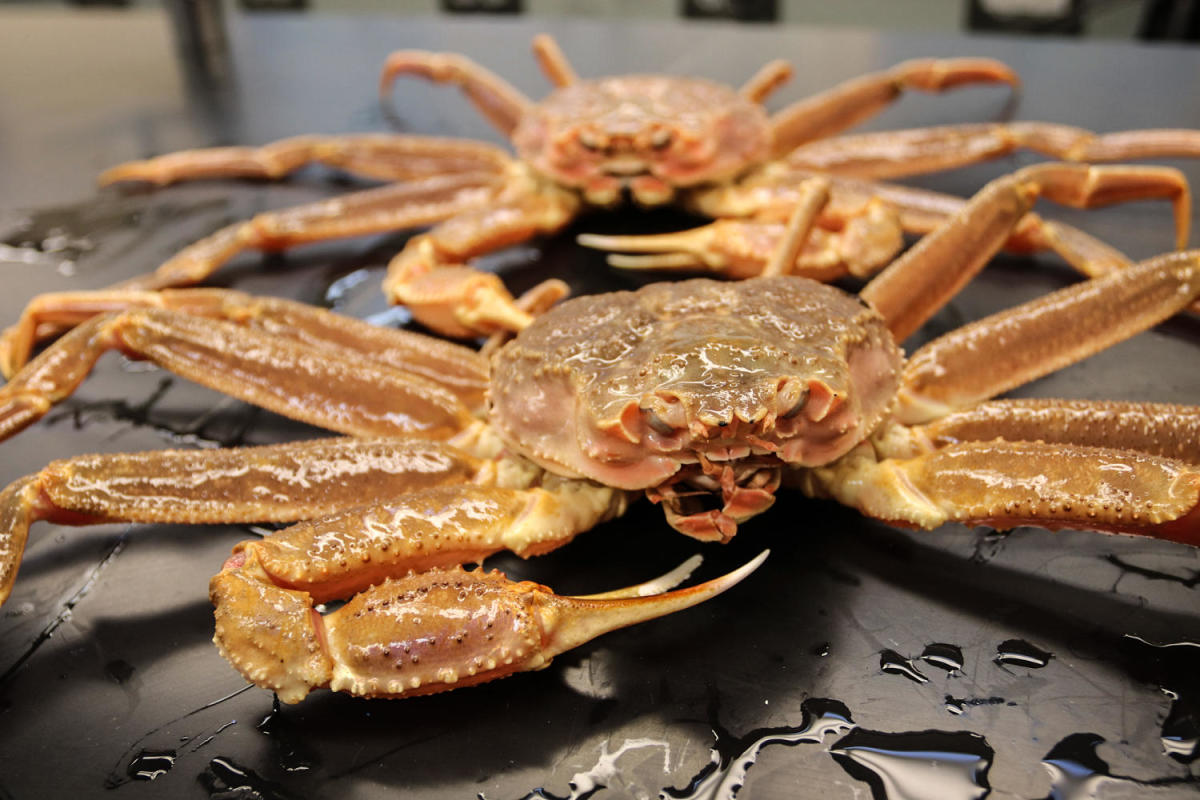About 10 billion snow crabs vanished from the waters of the Bering Sea between 2018 and 2021, leading to the closure of fisheries in Alaska last winter and posing a threat to the state’s economy. However, a recent study published in the journal Science on Thursday offers an explanation for this phenomenon.
The study suggests that these crabs likely experienced a massive starvation event triggered by consecutive seasons of extreme ocean heat. This decline in population, compared to its peak in 2018, highlights how climate change-induced marine heatwaves can disrupt ecosystems and jeopardize human livelihoods dependent on marine life.
The study’s authors emphasize that “climate change is the next existential crisis for fisheries,” exemplified by the swift change in prospects for the snow crab population.
Snow crabs rely on cold water to survive, often congregating in a cold pool that forms on the Bering Sea floor during summer, between Alaska and Siberia.
However, in 2018 and 2019, marine heatwaves caused the cold pool to virtually disappear.
Since the metabolism of crabs is temperature-dependent, the spike in water temperatures likely caused their caloric needs to surge while they were densely concentrated on the seafloor, resulting in mass starvation.
The researchers ruled out other potential factors for the population decline, such as trawling, predation, and disease. It is possible that the crabs relocated elsewhere on the seafloor, but despite surveying efforts, their whereabouts remain unknown.
The snow crab industry is a significant economic driver in Alaska, with approximately 60 crab ships grossing around $132 million from snow crab harvests in 2020, according to a report by the Alaska Fisheries Information Network and the National Oceanic and Atmospheric Administration.
The mass die-off caused the closure of the snow crab season during the winter of 2022-2023.
The current snow crab population remains too low for fishing, leading the Alaska Department of Fish and Game and the National Marine Fisheries Service to announce the closure of the season this winter, indicating another challenging season ahead for the crab fishing industry.
Original article published on NBCNews.com.


